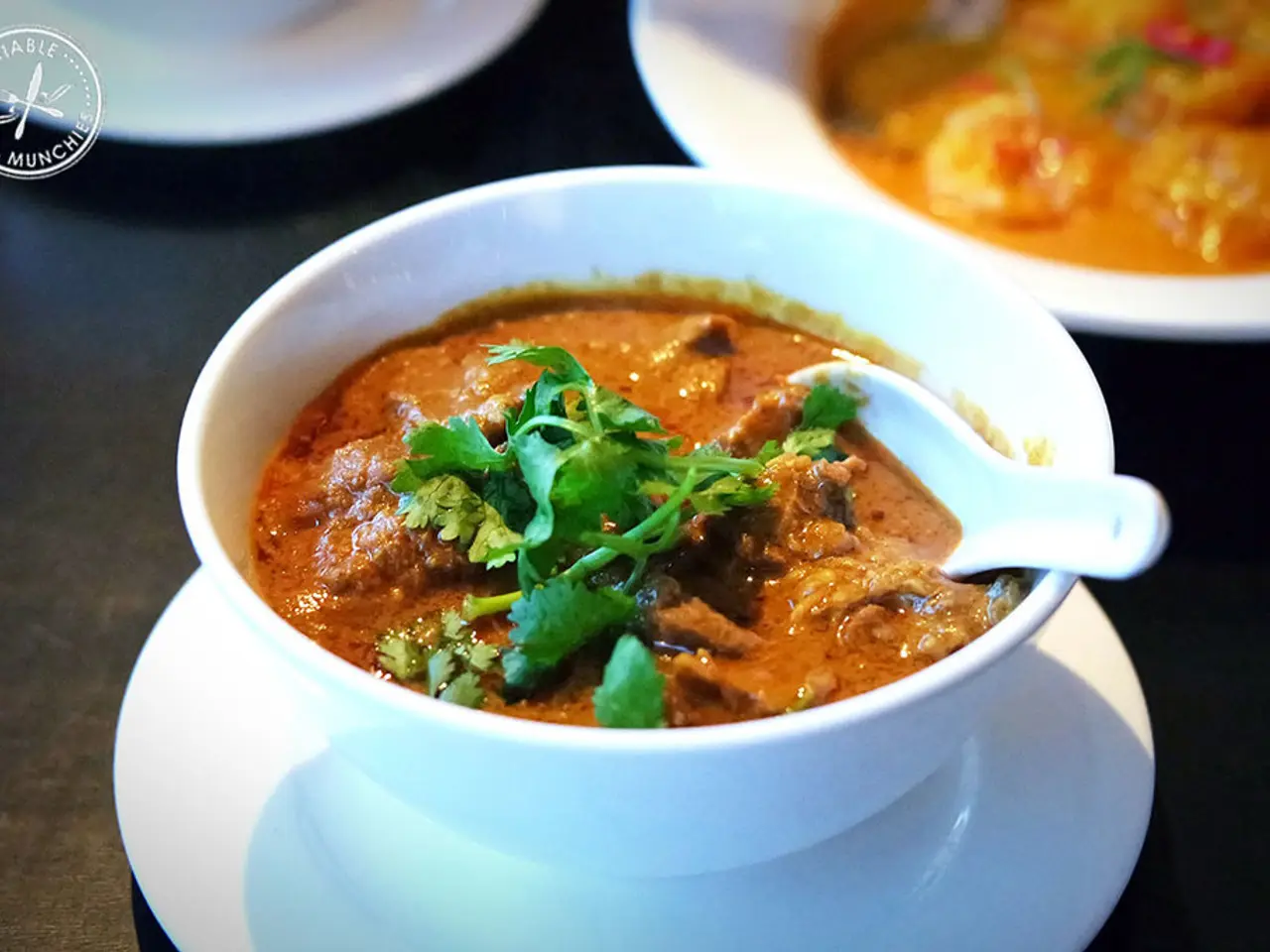Persisting Israel-imposed hunger in Gaza strains mothers as they ration their meager food supplies
In the war-torn territory of Gaza, families are struggling to find food and feed themselves. Kifah Qadih, a displaced woman from Khuza'a east of Khan Younis, goes hungry every day as her bowl remains empty. This sad reality is shared by nearly nine out of ten households in Gaza, who are resorting to extreme coping mechanisms to obtain food.
Alia Hanani, a 78-year-old woman, is rationing bread in Gaza, serving it once a day at noon. She uses a wartime dukkah made of flour, lentils, and bulgur as a condiment. The mother of eight, Alia Hanani, does not provide dinner or breakfast for her family. The Muzhed family's struggle to feed themselves is being repeated across Gaza, as the territory faces a potential famine.
Sally Muzhed's family of six relies on a bowl of stewed eggplant and watery tomato juice to avoid hunger. Rehab al-Kharoubi had to beg for the raw white beans for her family. The Muzhed family often eats stale pita, cold cans of beans, and food from charity kitchens. Amani al-Nabahin sometimes receives a dish called mujaddara from charity kitchens, which is now only made with rice and lentils.
The current food situation for families in Gaza is severe and deteriorating. More than one in three people in Gaza are going days without eating, with about 500,000 people—nearly a quarter of the population—facing famine-like conditions. Key indicators show a critical food crisis, with over 320,000 children under five at risk of acute malnutrition, and malnutrition rates among young children having quadrupled within just two months in Gaza City.
The food crisis is exacerbated by the ongoing blockade and conflict, which has disrupted families' access to their fields and fishing boats, and limited food supplies are often looted, hoarded, and resold at high prices. Gas for cooking is scarce in Gaza, adding to the families' struggle.
Deliveries of aid have resumed, but humanitarian groups argue that they are still insufficient. Israel's blockade on aid trucks in early March caused a shortage of supplies that lasted for weeks. The use of famine as a weapon of war has been noted, with severe restrictions and militarized aid distribution worsening the situation.
Immediate, large-scale humanitarian intervention is urgently needed to prevent further catastrophic hunger and deaths in Gaza. The United Nations and other international organizations have called for increased aid and the lifting of the blockade to alleviate the food crisis. The people of Gaza are hoping for a brighter future, where they can once again enjoy a meal without worry.
- Despite the ongoing difficulties in the areas of war-and-conflicts and politics due to the war-torn territory of Gaza, the need for health-and-wellness, nutrition, and fitness-and-exercise takes a back seat as families struggle to find food.
- Amidst the dire food situation in Gaza, general-news outlets report that Laila al-Madhoun, a nutritionist, is working tirelessly to provide proper nutrition information to families, emphasizing the importance of maintaining a balanced diet even in times of crisis.
- In response to the critical food crisis in Gaza, local politicians have initiated discussions about potential agricultural reforms and homestead farming as a means to ensure food security and improve access to health-and-wellness for its residents, with an increased focus on sustainable farming and crop diversity.




